Lyda Hill: Redefining Military Intelligence
Visionary philanthropist Lyda Hill infused $2 million into an innovative Brain Performance Institute (BPI) initiative aimed at empowering one of our greatest national assets – military service members.
After a conversation with her nephew, an Air Force F-16 pilot and Iraq war veteran, about the need for philanthropic support for military causes, Lyda set her sights on finding the answer to the question, “What are we doing to help military men and women thrive after their time of duty?” She realized too little, too late. Now, Lyda is on a mission to make sure our troops, both in and out of uniform, get to enjoy the quality of life they so courageously defend.
Although much effort is dedicated to repairing the physical wounds of war, very few programs in the sea of goodwill address the invisible injuries of the mind with meaningful, long-term life change. “The lack of attention to brain health is creating a preventable barrier to attaining future financial, social and emotional success,” said Lyda. “Brain health is like physical health. You can actively pursue it. It’s up to you.”
Lyda’s passion to ease the transition to civilian life for service members, her unparalleled community leadership, keen visionary insight and generous two-million-dollar gift has ignited the creation of mobile Warrior Training Teams that will deliver scientifically proven programs, developed at the Center for BrainHealth, to a wider audience. The goal of the Brain Performance Institute Warrior Training Teams is to arm veteran and active duty service members with the necessary tools to achieve successful, enriching and fulfilling lives by proactively optimizing brain performance, building resilience in cognitive brain function, and reversing losses in cognitive capacity. “It’s a way to help bridge the gap from deployment to employment,” Lyda explained.
“Lyda’s gift has been truly transformative for the Brain Performance Institute and has allowed us to immediately begin realizing our
vision to provide high performance brain training to a larger group of warriors around the country,” explained BPI executive director, Eric Bennett. “By capitalizing on the valuable leadership, decisionmaking, strategic thinking and problem-solving skills learned in the military, we will help warriors reach their brain potential and civilian life success.”
With Lyda’s donation, a Warrior Training Team has already been dispatched to assess a group of 38 select special operation forces before their deployment. Upon their return, these elite service members will complete Strategic Memory Advanced Reasoning Training (SMART), which has been scientifically proven to spur dramatic brain change after just hours of training.
“I am honored to be a part of the Warrior Training Team and to deliver a proven program, that profoundly affected my life, to my brothers and sisters in uniform,” said Jake Fuller, former Navy SEAL and inaugural Warrior Training Team member. “When I came back from deployment in November 2012, my stress level never dropped. I was subconsciously trying to keep my stress level at what I had become accustomed to in Afghanistan. SMART gave me the ability to move forward in the civilian world because I now know I am the driver of my most important tool for life success - my brain. To be able to give that opportunity to other service members is a privilege.”
When reflecting on those served by her magnanimous gift, Lyda said, “I am in awe of their willingness to protect our country for those they don’t even know. I want to thank each of them and let them know that the private sector is here to help. My greatest hope is that all of our military can be reintegrated into civilian society and enjoy the life that they have defended for their families.”
BRAIN CENTRAL

2
Under the Helmet 3
Enrich Your Mind: Dr. John Hart, Jr. Looks
Understanding the Brain: Autism and Virtual Reality 4
Leadership Spotlight: Eric Bennett and Kimber Hartmann
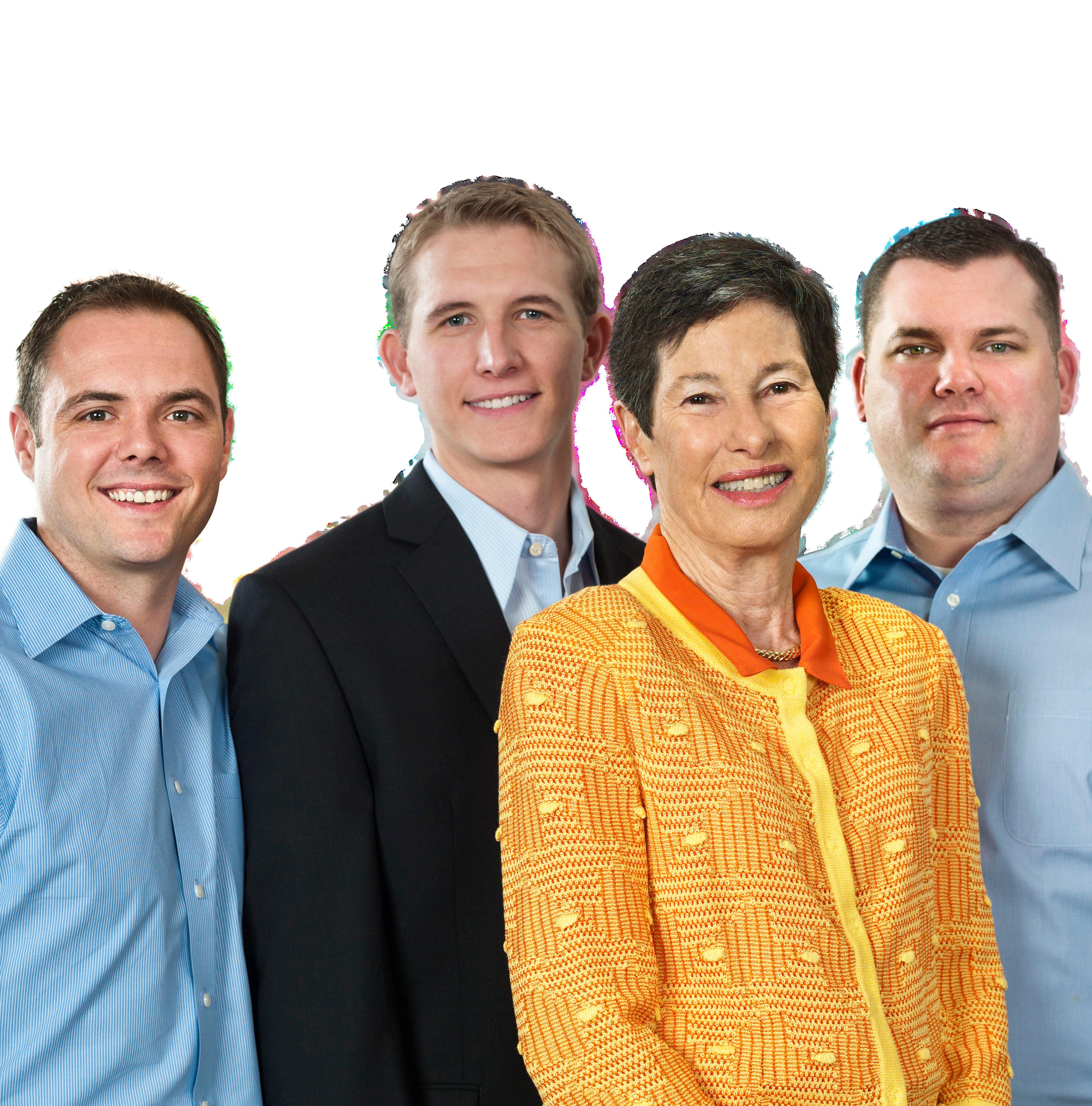
BRAIN THIRD QUARTER 2013 | C enter F or B rain h ealth at t he u niver S ity o F t exa S at d alla S
Lyda Hill with Warrior Training Team members and veterans: Mike Rials, Jake Fuller and Jake Schick
Dr. John Hart, Jr. Looks Under the Helmet
Q & A with Dr. Hart
John Hart, Jr., M.D. heads the BrainHealth Institute for Athletes and is lead investigator on the most comprehensive brain study of former NFL players to date. His team’s research aims to improve the state of mind for athletes everywhere.
E ach year, anywhere from 1.6 to 3.8 million athletes suffer a concussion, according to the Centers for Disease Control and Prevention. The long-term effects are unclear, but recent research from the Center for BrainHealth indicates brain changes caused by concussions may be putting aging former NFL players at higher risk of cognitive deficits and depression than the general population.
Q. What should people take away from the study findings?
Q. What can be done to prevent long-term consequences?
Great progress is being made in brain research at the Center for BrainHealth. New discoveries provide insight into how we can achieve maximum brain health, whether our brains are healthy, injured or diseased.
Developing solutions to achieve higher brain performance is a major research focus at the Center. It is also one of the reasons became involved on the board and am extremely dedicated to its continued success. Knowledge is great, but doing something with that knowledge is what’s really important.
THE CHALLENGE: How do we take the knowledge that we have gained from research and turn it into practical application?
At the Center for BrainHealth, highly accomplished scientists work side by side with experienced clinicians. Together, they have produced treatments and training programs that have been proven to rewire and strengthen the brain. The results are lifetransforming.
These programs are ready to be offered to the public. To do this, we are building the Brain Performance Institute. This leading-edge training facility will be located next door to our world-class research center on Mockingbird Lane. Talk about exciting!
Thanks to the dedicated, visionary and generous board members and community supporters, this “brain gym” will become a reality. Anyone and everyone can benefit from the programs that will be offered, including returning warriors, students, teachers, stroke victims, athletes, people with concussions, as well as those of us who are simply aging. The list goes on and on of who can benefit.
Become a key player in advancing the Brain Performance Institute! I want your input, questions, and ideas. Please share your experience, connections, contacts, and support, so that together we can make a difference in the most important scientific frontier – brain health.
Sincerely,
Debbie Francis Advisory Board, Chair
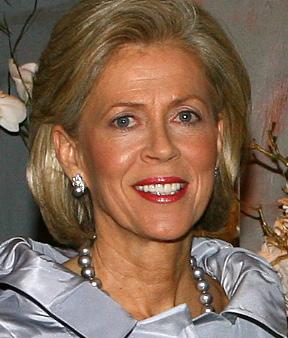
For more information visit BrainPerformanceInstitute.com
Please send your inspiring ideas to brainmatters@utdallas.edu
The Playbook: The study compared three groups of people:
• former NFL players with cognitive impairment and depression,
• cognitively normal retired players who were not depressed,
• and a group of healthy, matched controls.
The Stat Sheet: 34 retired NFL players particpated in the study.
• 42% had cognitive deficits

• 12% - fixed cognitive deficits (naming, word finding and visual/verbal episodic memory)
• 24% - mild cognitive impairment (MCI)
• 6% - dementia
• 24% had clinical depression
Dr. Hart and his team compiled detailed neurologic and neuropsychologic assessments as well as neuroimaging data.
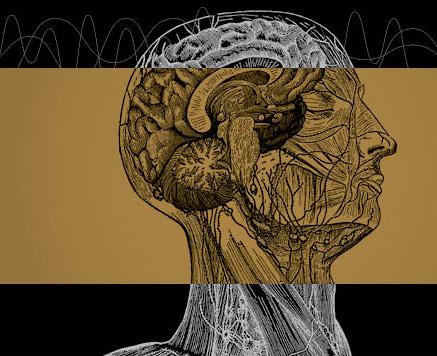
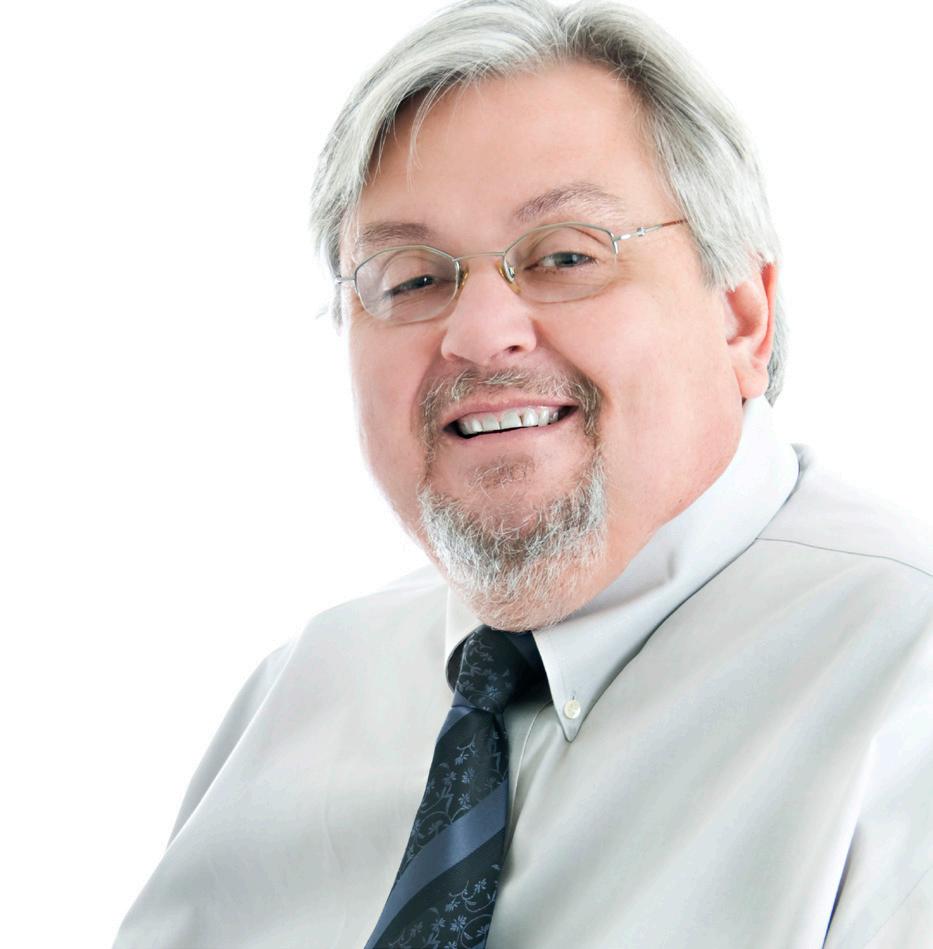
UNDERSTANDING the BRAIN
Yale Collaboration: Virtual Triumph, Real World Success
“I want to learn how to make a friend” is the first request Tandra Allen, social cognition project coordinator at the Center for BrainHealth, usually hears when talking to adolescents with autism.
The transition into adulthood is rarely smooth, but autism poses communication challenges that can derail typical milestones. Establishing relationships or beginning a career are hard to do when knowing how to interpret and react to others’ emotions and body language does not come easily.
For the first time, the Center for BrainHealth and the Child Study Center at Yale
K N O W B R A I NE R
Brainpower of Unknown: Do not be satisfied with status quo. Keep your natural born curiosity alive, and constantly look for ways to move to the unknown. Seek new experiences to change, grow and expand your perspective and ability to innovate.
University Yale School of Medicine are collaborating to help young adults with autism spectrum disorder (ASD) achieve economic and social independence. “It is the technology of tomorrow, today,” explains Daniel Yang, Ph.D., postdoctoral researcher at the Child Study Center at Yale University. “Combining BrainHealth’s virtual reality service model with Yale’s fMRI and EEG techniques, we are able to help individuals with autism and, at the same time, track changes in the brain.”
For more than six years, BrainHealth’s virtual reality program has provided realistic and dynamic opportunities to succeed in social situations. Study findings published recently in the Journal of Autism Developmental Disorders reveal that this cutting-edge technology is a promising tool for improving social skills, cognition, and functioning in autism. “Participants’ scores significantly improve in areas of emotional recognition, as well as the ability to understand and respond to what others are thinking, in as little as five weeks,” said Ms. Allen. “They feel that the training improves their conversation skills. It’s very exciting to be taking this initiative nationwide.”
Carl Lutz, the head of BrainHealth’s virtual reality lab, explained why this works. “Video games are fun, and this is therapy disguised as a high-tech game with state-
A. Three important take-aways. 1. It’s important to realize that not everyone who gets a concussion has problems. 2. The severity or number of concussions does not correlate to repercussions like dementia. We think a specific type of concussion is causing the problems. 3. There is a high correlation between depression and concussions.
Q. How are deficits in retired athletes different from the normal aging population?
A. Typically we see some decline in memory with age. However, the former NFL players in the study are having more profound memory trouble than a person without a history of concussions. They are also experiencing lapses in word finding and difficulty with name recall. We suspect the centers in the brain responsible for these areas of cognition might be more susceptible to concussion-related damage.
Q. Did the players exhibit typical signs of depression?
A. The players who were depressed were not showing typical symptoms. They didn’t know that they were depressed. Many of them had a lack of energy or a change in energy, an inability to concentrate, an inability to start or finish projects, and were even contemplating suicide, but because they were not crying or feeling sad, they did not associate their symptoms with depression. Their depression manifested as a thinking disorder, not a mood disorder. It begs the question: is concussion depression its own type of depression?
A. What this study does tell us is that it is important to monitor player safety at all levels. Return-to-play rules need to be outlined and enacted if a head injury is suspected. Physicians and trainers should also add a depression screener to their evaluation of any head injury patient. If you think you are having problems, don’t be scared of the diagnosis. There’s help out there. If we know you have depression, it’s easy to treat. If you are having cognitive issues, the Center has developed strategies that can help.
Q. What does this mean for the future?
A. What’s promising is that we were able to locate and document imaging markers that may account for why some patients develop problems, and we may be able to determine who might be at risk for cognitive impairment later in life.
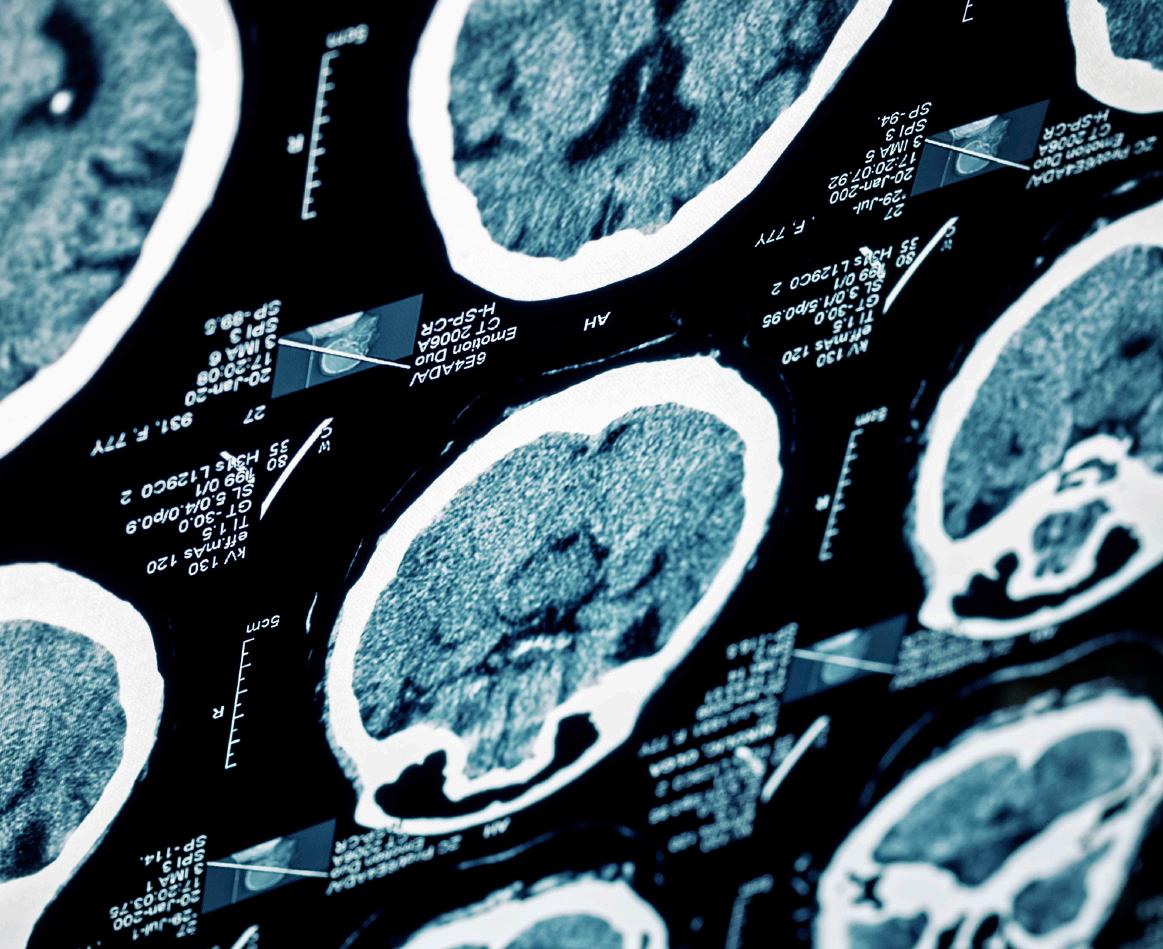
Q. Would you let your child play football?
A. I have a 17-year-old boy, and he plays lacrosse. The players we’re seeing now who are having problems played 30 or 40 years ago. The science wasn’t out there saying that you needed to rest your brain after a head injury; they would just get back into the game as soon as they were ready. That risks what we call “second impact syndrome”. We know better now. The game is safer than it was back then.
Q. What is second impact syndrome?
A. If you don’t let the brain rest and heal after a concussion and then a second concussion occurs, the brain disruption from the second concussion is greatly amplified. It increases your chances for long-term damage. Remember, when in doubt, keep kids out. It’s just not worth risking a child’s future.
BRAINHEALTH RESEARCH
Symposium Held with UC Berkeley Highlights Addiction Science
of-the-art graphics, real-time face tracking and personalized avatars. Participants don’t realize that while they are having fun, their brains are changing to positively affect future real world scenarios.”
Carly McCullar, a recent UT Dallas graduate who was diagnosed several years ago with ASD, went through the Center’s social cognition training during her senior year. The training taught her to handle dynamic situations such as job interviews, a problem with a neighbor, and even dating.
“This is real life. If you can succeed in the alternate reality, you can do it for real,” Ms. McCullar explained. This summer she passed her TExES 191 Early Childhood - 6th Grade Generalist Exam and was subsequently hired to teach Pre-K at W.W. Bushman Elementary School in Dallas. “I wouldn’t have been able to interview and do what I’m doing if it weren’t for the training,” she said. Ms. McCullar also reports, “I have now made real friends, longlasting friends whom I know will maintain relationships with. now truly understand what friendship means and value its importance.”
The researchers hope to prove that the social brain in autism can be rewired with training. Dr. Yang expounded, “I hope through this collaboration we will help build a service model that can generalize to many other regions in the United States.”
For nearly a decade, the Center for BrainHealth and its collaborators at the Helen Wills Neuroscience Institute at The University of California, Berkeley, have hosted the Reprogramming the Brain to Health Symposium gathering distinguished scientists to discuss their breakthroughs in brain plasticity. This year, scientists from around the nation met in Berkeley to discuss topics including reward-based decision-making; neural mechanisms of goal-directed and habitual control; state and trait modulators of immediate reward bias in alcohol-use disorders; and the role of dopamine in food-related behavior. More than 25 BrainHealth researchers attended, including Dr. Francesca Filbey who presented “Reward-Centricity in Marijuana Users”. Each year, the Symposium presents a scientist whose discoveries have dramatically changed the path of neuroscience with the Dr. Charles L. Branch BrainHealth Award. This year, Dr. Daniel R. Weinberger received the honor. Formerly the Director at the National Institute of Mental Health (NIMH), Dr. Weinberger is now CEO of Lieber Institute for Brain Development in Baltimore, Maryland, where he works with brain imaging and genetics to determine individuals at risk for mood disorders. The Center for BrainHealth and UC Berkeley are currently collaborating on healthy aging research.
Improving Healthcare for Young Brain Injury Survivors
The Center for BrainHealth and The Sarah Jane Brain Foundation, which includes a high-profile network of top researchers and medical personnel, are collaborating to create a better system of care for the number one cause of death and disability for young people ages 0 to 25 in the United States: Pediatric Acquired Brain Injury (PABI). The National PABI Plan, being submitted through the U.S. Senate, would make the Center for BrainHealth the PABI National Virtual Center, a high-tech hub to help families and professionals navigate the complex care required to restore losses after an acquired brain injury. “Head of pediatric brain injury programs, Dr. Lori Cook, and chief director, Dr. Sandi Chapman, are two of the most compassionate dynamos. They have helped people with devastating prognoses regain normal lives,” said Patrick Donohue, founder of The Sarah Jane Brain Foundation. “As a father of an eight-year-old with a traumatic brain injury, I could not think of a better team to steward this important initiative.” The PABI Plan will develop a standardized, evidence-based system that is universally accessible to millions of families. The legislation will cover the entire continuum of care from prevention; treatment in acute medical facilities; reintegration into school, community and home; as well as transition into independent living as an adult. The plan also addresses the national need for advancement in research, treatment, and education.
SMART Helps Richland College Students with Brain Injury
College students with a traumatic brain injury (TBI) experience cognitive and social difficulties that make academic success challenging. A new Center for BrainHealth collaboration with Richland College’s Total ReIntegration (TRI) Program, a resource that helps young adults with TBI re-acclimate to the academic setting, aims to make academic achievement and social ease a reality. This spring, BrainHealth researchers offered a SMART program to Richland TRI students as part of a research study examining the program’s benefits in TBI. “Even though the brain injuries happened years ago and healing had plateaued, the TRI group showed significant improvement,” explained BrainHealth scientist Asha Vas, Ph.D. The TRI students enhanced their higher-level critical thinking skills and reported increased proficiency completing day-to-day tasks as well as gains in organization and communication skills. Daniel Gonzalez, survived a 2004 car crash, but lost his right eye, suffered a TBI and was in a coma for days. Cognitive deficits, depression, and hyperthyroidism followed. Daniel said, “I have been taking TRI classes for several semesters. Through SMART, I learned strategies that helped me study and focus. It even helped me socially. Now, I feel ready to take more academically challenging classes in the fall.”

ENRICH YOUR MIND:
TIP
LETTER from the board chair
2
3
Leadership Spotlight
E ric Bennett and Kimber Hartmann, two individuals who left successful careers in for-profit industries to follow their passion, are at the helm of the Brain Campaign, an $82 million capital fundraiser to construct the Brain Performance Institute, as well as fund five years of programming, expand research and build an endowment for the national headquarters. “With their leadership, 30 years of research will finally have the opportunity to directly impact the lives of the hundreds of thousands of people who want to make their brains smarter and healthier,” said Center for BrainHealth Founder and Chief Director, Dr. Sandi Chapman.
foundation for his keen strategic insight, management skills and ability to raise funds. “I get immense joy out of building things,” he explained. “The vision of the Brain Performance Institute is so tangible and powerful that it resonated with me. Building awareness about brain health and translating research into programs that work is creating transformative change. We are helping people realize that everyone can change their mind to create a healthier brain.”
Chapman inspired former BrainHealth Advisory Board Member, Eric Bennett, to join the Brain Performance Institute as Executive Director. As co-founder of one of the most successful and largest wealth management firms in Texas, Eric’s previous leadership experience and the relationships that he developed during a 25-year career in financial services are the
Eric is charged with growing the Institute, making the cutting-edge programs developed at the Center scalable, and finding the financial backing to make that possible. He is concentrated on the Brain Campaign, building partnerships and laying the strategic groundwork for expansion.
Kimber Hartmann joined the Center for BrainHealth one year ago as Development Director after a 20-year career as an attorney. In addition to practicing general corporate law, she chaired some of the most prominent fundraising events in Dallas including the Genesis Women’s Annual Mother’s Day luncheon and the Community Partners of Dallas’ Chick Lit luncheon. She also served as underwriting chair for Celebrating Women, benefiting Baylor Health Care Systems, and is a member of Crystal Charity Ball and Cattle Barons Ball, in addition to serving as Vice President of Development for the Junior League of Dallas.
“Of all the places I could invest my time, this could have the biggest impact on the community,” Kimber explained. “I love being part of a place that is relevant to
CENTER GOINGS-ON
Communities Foundation of Texas Funds Brain Training for DISD Middle School
Imagine a school where brain performance is optimized and students are excited about learning. They ask thoughtful questions and make meaningful connections to real world situations.Test scores rise and self-confidence and creativity increase. A $250,000 Communities Foundation of Texas grant to the Center for BrainHealth will make this a reality at Thomas A. Edison Middle Learning Center, a school in West Dallas that serves low socio-economic status (SES) Hispanic and African American students.
This fall, Edison will become the first Dallas ISD school to integrate, campus-wide, the high performance brain training, know as SMART (Strategic Memory Advanced Reasoning Training), developed by the Center for BrainHealth. Nine core curriculum teachers have been intensively trained to teach a series of 10 SMART sessions, which encourages students to be innovative and use higher-level thinking skills. The remaining 70 teachers and school leadership will be taught skills to help incorporate the high performance brain training concepts into their existing curriculum. Once the initial professional development takes place, Center for BrainHealth will continue to provide additional in-classroom modeling and support for teachers,
Research and programs highlighted in this newsletter were made possible through the generosity of:
The Boone Pickens Foundation, Crystal Charity Ball, Communities Foundation of Texas, Lyda Hill, Lattner Family Foundation, PlainsCapital Bank, The ReesJones Foundation, Jane and Bud Smith, and The Sparrow Foundation.
including lesson planning, curriculum extension and additional professional development.
all of us. The Center offers people hope and control over their destiny. Because here, it’s about what you can do to make yourself smarter.”
Kimber works with major donors and foundations on developing resources to advance innovative research. She advocated on behalf of the Center to gain UT Regents’ approval for the Brain Performance Institute and helped negotiate the subsequent land deal. Together, the duo has raised $9 million toward the Brain Campaign’s goal, including generous donations from Emy Lou and Jerry Baldridge, Lyda Hill, Bert Headden, The Perot Foundation, Linda and Joel Robuck, Jane and Bud Smith, The Tolleson Family Foundation and Dee Wyly.
To date, more than 15,000 students in four states have completed the SMART program, and more than 200 teachers have been trained to implement the program in their classrooms. Research has revealed that teens who have completed SMART boosted their grades and improved reasoning ability by as much as 50%.
“We have seen the SMART program transform classrooms across the country,” explained Jacque Gamino, Ph.D., director of BrainHealth’s Adolescent Reasoning Initiative. “Teachers who have implemented the program report a more energized, creative and thought-filled classroom, and parents have stated their children are more confident and excited to learn. By bringing the interactive and engaging SMART learning environment to an entire school, we will give every child at Edison greater opportunity to reach his or her academic potential.”
The Center for BrainHealth hopes to expand the SMART Community School initiative even further, growing to multiple campuses and adding technology components.
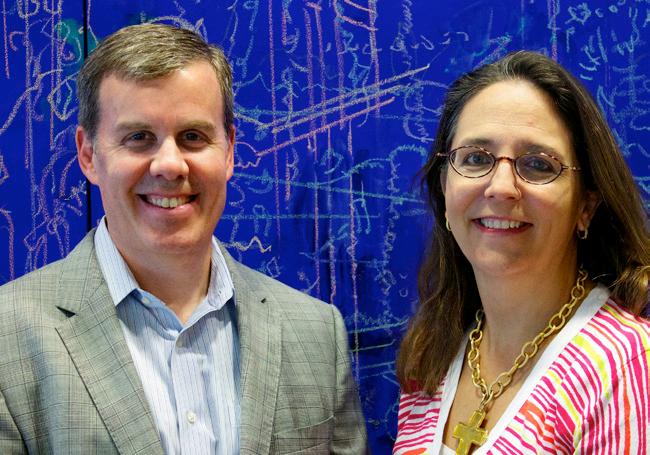
Support
centerforbrainhealth.org/friends
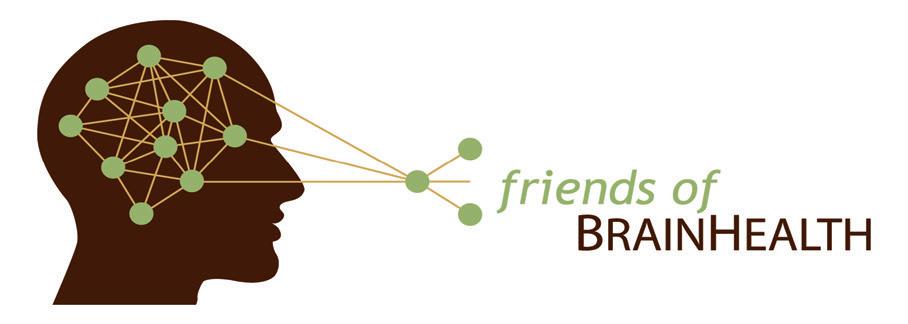 Eric Bennett & Kimber Hartmann
Eric Bennett & Kimber Hartmann
the Center for BrainHealth’s life-improving research.
S andra B ond C hapman , p h d Chief Director J ohn h art , J r ., m d Medical Science Director d e BB ie F ran C i S Board Chair B o B W il B ur Board Vice Chair 214.905.3007 CenterForBrainHealth.org Non-Profit U.S. Postage Paid Richardson, TX 75080 Permit No. 108 2200 West Mockingbird Lane Dallas, Texas 75235 4









 Eric Bennett & Kimber Hartmann
Eric Bennett & Kimber Hartmann